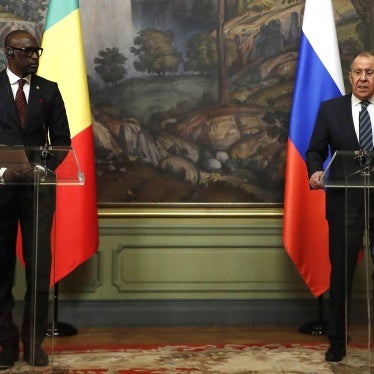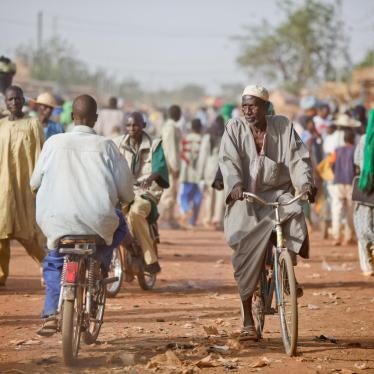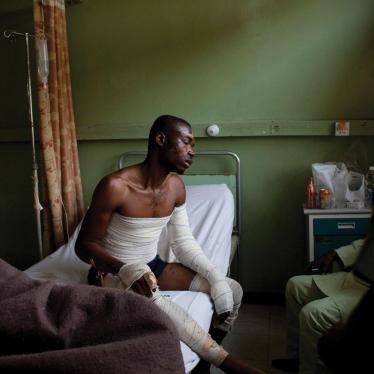Nigeria has made good news this week. The new president, Muhammadu Buhari, has just been sworn into office in a peaceful transition of power. A former agriculture minister, Akinwumi Adesina, has been elected president of the African Development Bank. At the international education conference in Oslo, Nigeria endorsed the Safe Schools Declaration, indicating a commitment to use the new Guidelines for Protecting Schools and Universities from Military Use during Armed Conflict, which calls on armed parties to avoid using educational buildings or making them targets of attack.
As the new president said Friday in his inaugural speech, Nigerians are rightly proud of the democratic transition of power. When I visited Nigeria recently ahead of the inauguration, the feeling of excitement and optimism was palpable. The new president’s speech gives room for cautious optimism.
He said all the right things when he identified the Boko Haram conflict as the most immediate challenge for his administration. He recognized the need to work with nongovernmental organizations, labor unions, and the media. He underscored the need to check gross corruption and abuse of office, overhaul military rules of engagement in the northeast to avoid human rights violations, and take disciplinary steps against proven human rights violations by the security forces. The new administration now deserves to be given the chance to address these complex and deep-rooted problems.
Once the party is over, Buhari should be taken to task to deliver on campaign promises and reform agendas. It will by no means be an easy job but his administration could demonstrate its human rights commitment by taking concrete and bold steps in three key areas: (1) ensure that security forces operations, from countering the Boko Haram threat in the northeast to dealing with the violence in Nigeria’s Middle Belt, are conducted in full compliance with international human rights and humanitarian law obligations; (2) deliver on accountability by ensuring prompt investigation and prosecution of anyone implicated in serious human rights abuses or corruption; and (3) end the divisive state and local government policies that discriminate against “non-indigenes,” by supporting the adoption of legislation that expressly bars all federal, state, and local government institutions from unlawful discrimination against “non-indigenes.”







